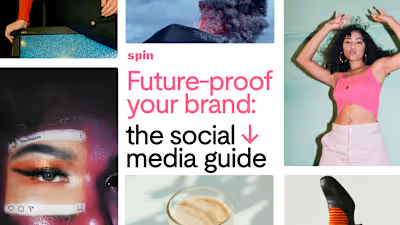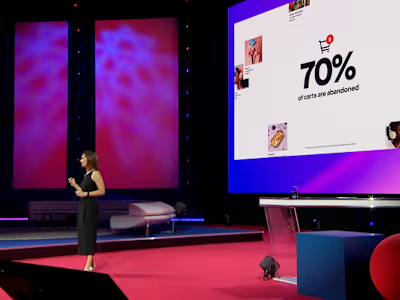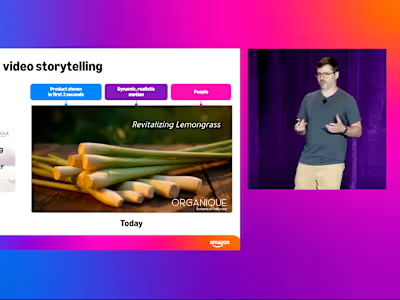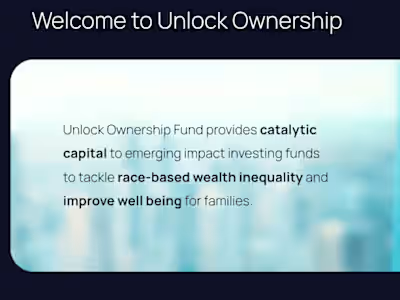How to Tell Culturally Relevant Stories for Our Age of Extreme …
We live in an age of extreme change. Increasing temperatures, geopolitical conflicts and social upheavals present formidable challenges for people and societies. And that’s in addition to a global pandemic that has brought profound shifts in our physical, mental and spiritual lives.
To grasp how culture is shifting amidst all this change, Facebook IQ commissioned a global survey and combined it with foresight thinking and an analysis of anonymized social media conversations and behavioral signals, like hashtags, that are used around the world.
As people reemerge from the pandemic, the research showed they are expressing a desire to seek greater meaning in their lives. Thirty-seven percent1 of respondents of a Meta Global Foresight study with Mintel said COVID-19 spurred them to reevaluate their purpose and priorities, while 65% now expect more out of work and life. When I became pregnant, I too had to reevaluate and recalibrate what mattered most, realizing a need to shift my own priorities to best support myself, my family and my career.
Similarly, consumers are reevaluating their relationship with brands. They want their purchases to reflect not only their immediate buying needs but a desire to build a better world. Globally, for instance, 69% of respondents of the Foresight study believe brands should care about the environment, providing sustainable living products for consumers and eco-friendly tourism options for leisure activities. As eco-friendly Millennials approach their peak spending years, the survey suggests they will hold businesses to account.
It’s often not easy, but marketing leaders and brand strategists must strive to understand these important cultural shifts—and what’s driving them—in order to respond with intelligence and empathy. The sharpest brands both reflect and refract these changes, enhancing these new directions with storytelling that shifts perceptions, advances culture and paves the way to a kinder world, the type of place where we want to live.
Inspired by several major themes identified in the research, four key recommendations emerged for marketers to help refine their brand storytelling with enhanced cultural relevance.
The value of human connection has never been greater, but the shape of modern relationships is more flexible—from how people engage with their devices to the ways they meet, love, interact and create with one another. Invite your audience to interact with your brand, creating participatory, hands-on and emotional experiences. For instance, Sephora Collection launched during the pandemic, when stores were closed and people couldn’t sample the scents. Sephora turned to sensorial AR, working with a neuroscientist to develop visuals that triggered scent memories.
Recently, many of us have redefined what success means. As a result, creativity has been unleashed, driven by social networks, affordable and powerful computing and the belief that everyone can be creative. This shift offers an opportunity to work with a new community of creators. No matter your business objective, there's a strong chance you can do it more imaginatively with a partner who connects with your audience. Havaianas, the popular footwear maker, partnered with diverse creators—such as people of different genders, sexual orientations, ages and races—and found that this enhanced inclusivity in its designs. As a result, campaigns led to a 57% higher conversion rate.
Authenticity and self-expression expand and evolve, as people assert themselves in rich and multifaceted ways. Globally, 42% of respondents say their nationality, ethnicity, country of origin or race matters more to their identity now than a year ago—and Gen Z and Millennial populations feel this even more strongly. To create more authentic and inclusive marketing, reach out to people whose experiences can expand your own. Don’t fall into the trap of creating personas—they don’t go deep enough in a world of diversifying identities.
Increasingly, people are looking to brands to help address and solve social problems, but some companies may feel reluctant to embrace purpose-driven marketing for fear of being accused of, say, greenwashing. To address growing complexity, mash up a few trends and act first, advertise later. Corona turned plastic into currency during the week of World Oceans Day in 2019, part of its longstanding effort to raise awareness about plastic pollution. The brand accepted plastic waste as a form of payment for beer in nine countries, and for every six-pack purchased, Corona and environmental nonprofit Parley for the Oceans committed to clean one square meter of a local beach. Then Corona launched a cause-driven campaign to celebrate the week, including a challenge with Mexican fishermen and women to retrieve plastic from the Pacific Ocean in return for a cash prize.
The world is changing rapidly, shifting our values and behaviors. Your brand messaging should reflect those new realities. Even better, as marketers, use your power to help educate customers, guide them through these changes and provide a little inspiration to act. The future is ours to build, together.
Michelle Klein is Vice President of Global Business Marketing at Meta.
Facebook IQ is the home for insights powered by what unfolds on our platforms every day and foresight inspired by our view of what’s on the horizon. Discover audience and planning and buying insights, as well as industry insights for your vertical. Explore interactive reports and insights tools to quickly find the data you need from our broad and frequently updated repository of internal data and commissioned research. We’re here to help you fuel more effective marketing and advertising by staying up to date with the latest consumer behavior trends and market research.
Like this project
Posted Dec 9, 2024
The world is changing rapidly, shifting our values and behaviors. Your brand messaging should reflect those new realities.






